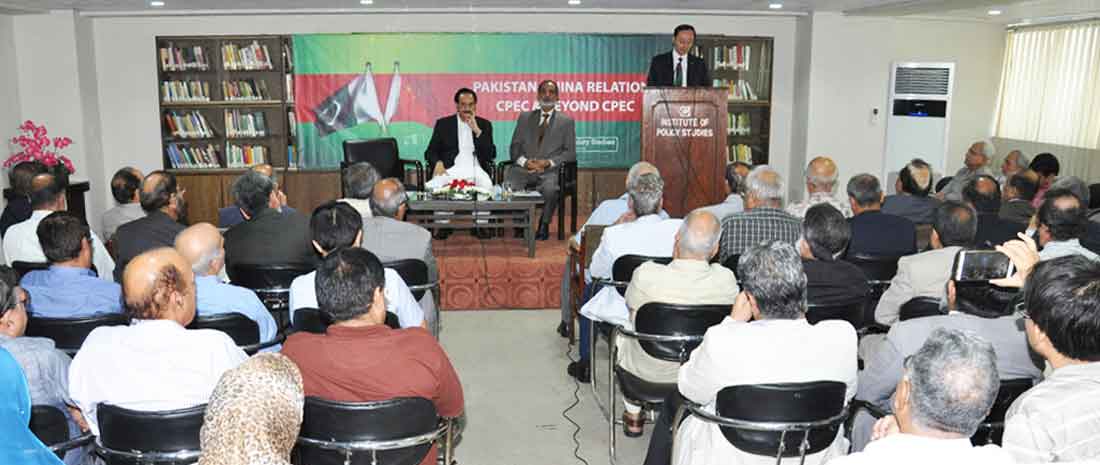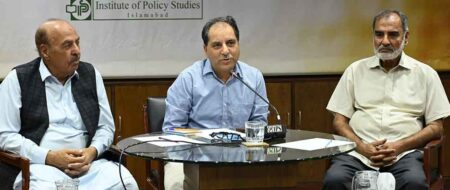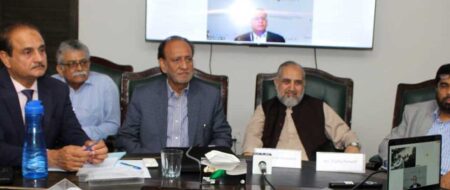Pakistan-China Relations: CPEC and Beyond CPEC
CPEC has started giving early harvest: Sun Weidong
Terming CPEC a win-win scenario for both China and Pakistan, Sun Wiedong, the Chinese ambassador to Pakistan stated there was no country other than China that wanted to see a stronger, stable and developed Pakistan.
He was delivering an exclusive talk on the topic of ‘Pakistan-China Relations: CPEC and Beyond CPEC’ which was organized by Institute of Policy Studies (IPS), Islamabad on August 10, 2017. The session was chaired by Raja Muhammad Zafar-ul-Haq, leader of the House, Senate of Pakistan.
Summing up the breadth and depth of Pak-China cooperation in three words: All-Weather, All-Round and Iron Brothers, the ambassador said the historic visit of Chinese President Xi Jinping in 2013 paved way for the new era of bilateral relationship which to-date has seen comprehensive promotion of exchanges in the areas of trade, investment, culture, education, science and technology between the two countries.
According to the ambassador, the China Pakistan Economic Corridor (CPEC) has entered the stage of giving some early harvest. Among the projects with the total worth of $18.5 billion investment, the projects pertaining to energy – the dire most need of Pakistan at present – had been at the forefront with six projects in progress and five have already been built. The speed of the completion of Sahiwal Coal Power Project has been a record in Pakistan and it is expected that the completion of all eleven energy projects will add about 11000 megawatts of electricity to the Pakistan’s national grid, eventually significantly alleviating the energy shortage in Pakistan and adding strong impetus to the country’s economic development. The construction of road connections were termed another vital area of investment by the diplomat stating that the upgradation of Karakoram Highway and the highway from Peshawar to Karachi will unlock the transportation arteries in Pakistan that will effectively stimulate economic vitality.
Social effects were another emerging area pointed by the ambassador, with about 60,000 Pakistani workers already employed by Chinese enterprises under and outside the umbrella of CPEC as per some statistics. These Chinese companies, according to the ambassador, were not only bringing the investment as well as the tax revenue to Pakistan, but also playing an important role of transforming locals into skilled and productive workforce in numerous areas. He viewed that such contributions by the Chinese organizations will eventually result in the development and transformation of complete industry chain in Pakistan.
He also commented about the ongoing situation of academic exchanges between the two countries stating that around 18,000 Pakistan students were studying in China at present whereas the number of Pakistani students enjoying scholarships by the Chinese government accumulated to nearly ten per cent of the total offerings.
He also shared that Pakistan’s trade deficit in this regard was already improving while revealing that a special delegation of investors was on visit to Pakistan at present with an aim of taking Pakistani products into the Chinese markets.
Raja Zafar-ul-Haq in his speech stated that while Pakistan was keen to share with Chinese friends the advantages accruing from the country’s strategic position at the crossroads of Central Asia, South Asia, and West Asia, it also feels indebted to its Northern friend for its cooperation that has fueled progress and growth in Pakistan in all important areas of energy, infrastructure, science and technology, manufacturing, electronics, transport, construction, mining, etc.
He viewed that while the two countries shared common interests and aspirations of mutual growth and development, the significance of this strategic partnership – that will serve as a pivot for regional connectivity, peace and stability – will eventually extend and benefit everyone far beyond.
Executive President IPS, Khalid Rahman, in his opening remarks, earlier, highlighted that it was important to note that adversaries of China and Pakistan – both from within and outside – were targeting the spirit of mutual trust and understanding between the two nations by coming up with many negative themes such as trade imbalance, terms of investment, increased flow of Chinese workers in Pakistan, costs of the projects involved and their security, and strategic dynamics of the infrastructure being built as part of CPEC. This, he added, though was not unexpected in this age of perception management, necessitates a continuous emphasis on the elements which have led to the strong bond of relationship between the two countries and a pre-requisite to take it to newer heights.












